
Metals trade in West Asia: aluminum, steel, and more.
In the 20th century, the discovery and extraction of oil in the Middle East transformed the region's economy. The oil and petrochemical industry heavily relies on metal infrastructure and equipment for exploration, production, refining, and distribution. Steel and Aluminum Production: West Asia, particularly countries like Saudi Arabia, Iran, and the United Arab Emirates, has invested significantly in steel and aluminum production. These metals are essential for infrastructure development, construction, and industrial sectors.
Oil and Gas not a metal, the discovery of vast oil and gas reserves in West Asia has greatly influenced the region's economy and trade. Revenue generated from the oil industry has been invested in various sectors, including metal production and trade. West Asia has a long history of gold production and trade. Countries such as Saudi Arabia, Iran, and Egypt have significant gold reserves and have been involved in gold mining and trading activities. West Asia is known for its copper deposits. Countries like Iran, Turkey, and Oman have substantial copper reserves and engage in copper mining and export. Iron and steel production is prominent in West Asia. Countries like Iran, Saudi Arabia, and Turkey have established steel mills and engage in domestic production as well as export.
West Asia is a major producer of aluminum. Countries like United Arab Emirates, Bahrain, and Qatar have aluminum smelters and play a significant role in the global aluminum market. West Asia has been a vital crossroads for trade since ancient times. It was a crucial intersection of the Silk Road, connecting Europe, Asia, and Africa. This facilitated the exchange of metals, including precious metals like gold and silver. Arab traders played a significant role in the historical trade networks of West Asia. They were involved in the exchange of goods and commodities, including metals, along maritime and overland trade routes.
Some countries in West Asia, such as the United Arab Emirates, have established free trade zones that facilitate metal trade. These zones offer tax incentives, streamlined customs procedures, and business-friendly regulations, attracting international metal traders and companies. West Asia is moving towards developing downstream industries in the metal sector. This includes the production of value-added products such as fabricated metal products, machinery, and metal components. Several West Asian countries are focusing on developing aluminum downstream industries, including the production of extrusions, sheets, and other aluminum-based products.
Also, based on the obtained results, the growth rate of the comparative advantage index of the export of most of the basic metals industry commodity groups fluctuates during the period of study. Production of non-ferrous metals has increased by more than 120 percent over the past 20 years, with the development of non-ferrous metals alongside ferrous metals being one of the goals and plans. The economies of many countries in the Middle East depend on natural resources, which form the economic foundation of these countries.
The base metals industry is the most important export industry in the Middle East after oil and petrochemicals. The results indicate that despite the comparative advantage of the Middle East in the main group of export goods of basic metals industries, the competitive advantage for this group of products does not have a clear trend and stability. In general, Middle Eastern countries' investment in the mining sector has been very low, except for a few countries in recent decades, and they have not paid much attention to it. In recent years, the Arab governments of the region have paid special attention to the use of information networks on the Internet to use and activate existing information and provide their resources and facilities in the mining sector.
The Middle East with its rich mineral resources and special construction position, including being within the mineral belt of copper, chromite, Serbian, aluminum, etc. in this region can be transformed by exploitive, extractive development and especially mineral processing in the economic position itself and be an important mineral hub at the international level. According to experts, the future of the world's metal reserves, including iron, titanium, manganese, chromium, copper, and tin, its anti-hair, bismuth and platinum group, and non-metallic reserves, including perlite, potash, bauxite, and limonite, are promising. Deposits such as lead, zinc, gold, silver, indium, arsenic, diamonds are running low, and deposits such as copper, shingles, Cardium, strontium, natural graphite, and sulfur will soon be depleted.
Many global mining experts predict that at current consumption rates, the planet's economy over the next 70 years will undermine the current known reserves, which are likely to consume half of the world's current metals. Shortly, increasing dependence on essential mineral imports, plus global competition for scarce resource resources, will increase prices and bargain for exporting countries.
Major cities in West Asia, such as Dubai and Istanbul, have emerged as important metal trading hubs. They serve as centers for metal imports, exports, and trading activities, connecting international suppliers and consumers. Industrialization and Diversification: Many countries in West Asia are actively diversifying their economies beyond oil and investing in manufacturing, construction, and infrastructure projects. This has led to increased demand for metals and metal products, boosting the metals trade in the region.
West Asian countries export a wide range of metals to global markets. These include petroleum and petroleum products, iron and steel products, aluminum, copper, and precious metals. West Asia also imports metals to meet domestic demand. This includes raw materials, semi-finished products, and finished goods. For example, countries in the region import steel, copper, and aluminum for construction, infrastructure projects, and industrial applications. Some cities in West Asia have emerged as major metal trading hubs. For instance, Dubai in the United Arab Emirates and Istanbul in Turkey serve as important centers for metal trading, connecting global suppliers and buyers. West Asian countries have invested heavily in industrialization and infrastructure development. This has increased the demand for metals, particularly steel, aluminum, and copper, for construction, manufacturing, and other sectors.
-
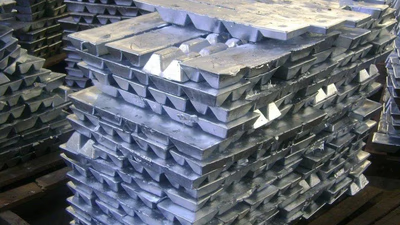
Metals are a class of chemical elements characterized by high electrical and thermal conductivity, malleability, ductility, and luster. Typically solid at room temperature, except for mercury, metals possess a crystalline structure that facilitates electron movement, contributing to their conductivity. They exhibit metallic bonds, sharing electrons within a lattice. Metals vary in reactivity; noble metals like gold and platinum resist corrosion, while others, such as iron and aluminum, are prone to oxidation. Their strength and durability make them suitable for diverse applications across construction, manufacturing, transportation, and electronics. Metals can form alloys, enhancing their properties. They are primarily silvery, high-density solids, with some exhibiting unique characteristics like low densities or high melting points. Metals are excellent conductors of electricity and heat, attributed to their free electrons.
Malleability allows them to be shaped without breaking, while ductility enables stretching into wires. The periodic table categorizes metals into groups, including alkali, alkaline earth, transition, and precious metals. Understanding these properties is crucial for industries relying on metal trade, especially in regions like the Middle East and West Asia, where commodities like aluminum, steel, and gold are pivotal.
-
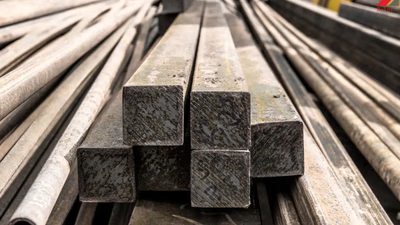
Metals are characterized by their excellent electrical and thermal conductivity due to the presence of free electrons. They exhibit malleability and ductility, allowing them to be shaped into various forms without breaking. Most metals are solid at room temperature, with a crystalline structure that contributes to their strength and stability. While some metals, like gold and platinum, are resistant to corrosion, others, such as iron and aluminum, are more reactive and prone to oxidation. Metals are typically dense, shiny, and have high melting points, making them suitable for a wide range of applications in industries such as construction, manufacturing, and electronics. Their versatility is further enhanced by their ability to alloy with other metals, leading to materials with tailored properties for specific uses. The unique combination of these characteristics makes metals indispensable in modern technology and infrastructure.
-
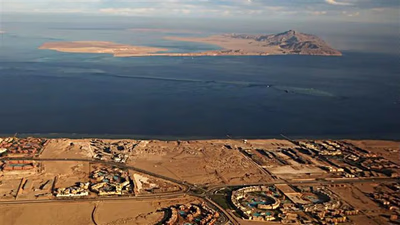
Egypt"s metal industry has deep historical roots, particularly in gold mining, with the Sukari Gold Mine being a notable site. The country also possesses significant iron ore deposits, primarily located in the Eastern Desert and Sinai Peninsula. Bauxite is another key resource, supporting aluminum production at the Egyptian Aluminium Company (Egyptalum). The steel sector plays a vital role in Egypt"s economy, providing essential materials for construction and manufacturing. Additionally, Egypt has a growing copper industry, with deposits in the Sinai Peninsula and Eastern Desert, contributing to electrical and construction sectors. The country also processes non-ferrous metals like zinc and lead, which are crucial for various industries. Despite its resources, Egypt primarily imports metals to meet its industrial demands, relying on international suppliers for essential commodities. The government is working to enhance the competitiveness of the metal sector through infrastructure development and investment incentives.
Challenges such as energy costs and regulatory reforms remain, but ongoing investments aim to bolster the industry. Egypt"s strategic location facilitates international trade, allowing for efficient metal imports and limited exports of refined products. The focus is on value-added production rather than raw metal exports, with a vibrant metal fabrication sector supporting local and international markets."
-
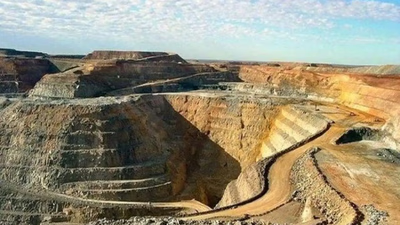
West Asia"s geological diversity has led to the formation of significant metal deposits, influenced by tectonic and volcanic activity. The region is rich in resources such as gold, copper, aluminum, and iron, found in various geological formations. Countries like Saudi Arabia, Iran, and Turkey are key players in metal production, with notable mines like Mahd adh Dhahab and Sarcheshmeh. The strategic location of West Asia has historically facilitated trade, making it a vital hub for metal mining and commerce. The region"s ancient civilizations utilized metals extensively, driving further exploration and extraction. The combination of geological richness and historical demand positions West Asia as a crucial area for commodity trade, particularly in metals like zinc, nickel, and manganese, which are essential for various industries.
-

Iran is strategically located between significant mountain ranges, contributing to its rich mineral reserves. The country boasts 62 types of minerals, with proven metal reserves estimated at 6 billion tons and potential reserves exceeding 5 billion tons. Key metals include copper, iron ore, zinc, aluminum, lead, and gold, with Iran being a top global producer in several categories. Notable copper deposits are found in Kerman, Sistan and Baluchestan, and East Azerbaijan, while high-quality iron ore is primarily sourced from the Chadormalu and Gol Gohar mines. Zinc production is concentrated in Yazd, Zanjan, and East Azerbaijan, supporting various industrial applications. The aluminum sector is bolstered by significant bauxite deposits, particularly in Jajarm and North Hormozgan. Gold mining, especially in the eastern regions, plays a crucial role in the economy, supporting jewelry and investment sectors. Iran"s steel industry is well-established, producing a wide range of products essential for construction and manufacturing.
Despite facing challenges from economic sanctions and geopolitical factors, Iran aims to enhance its metal industry through government initiatives and foreign investment. The country is focused on maximizing domestic consumption and exploring export opportunities, leveraging its vast mineral wealth."
-

West Asia"s economy has been significantly shaped by its rich metal resources and the oil industry. Countries like Saudi Arabia, Iran, and the UAE have heavily invested in steel and aluminum production, essential for infrastructure and industrial growth. The region"s historical trade routes facilitated the exchange of metals, including gold and silver, and modern free trade zones have attracted international traders. Despite a comparative advantage in basic metals, the region"s investment in mining has been low, with recent efforts focusing on leveraging information networks to enhance the mining sector. The demand for metals is rising due to industrialization and diversification beyond oil, with cities like Dubai and Istanbul emerging as key trading hubs. West Asia exports a variety of metals while also importing raw materials to meet domestic needs. The future of metal reserves is uncertain, with predictions of depletion in several key minerals, leading to increased competition and prices in the global market. As the region continues to develop downstream industries, it aims to transform into a significant mineral hub internationally."
-
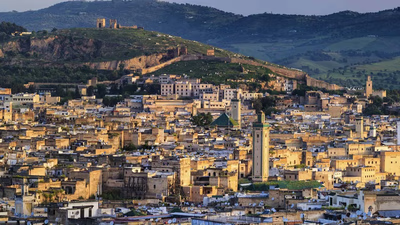
Morocco is a significant player in the global metals market, particularly known for its vast phosphate reserves, which are crucial for fertilizer production. The country ranks among the world"s largest producers and exporters of phosphates, primarily sourced from the Khouribga and Youssoufia regions. Additionally, Morocco has notable lead and zinc deposits located in the High Atlas and Anti-Atlas Mountains, which are vital for various industries, including construction and automotive. The copper industry, though smaller in scale, is also present, with deposits in the Anti-Atlas Mountains and Draa Valley. Silver mining complements the metal sector, with resources often found alongside lead and zinc. Morocco"s iron ore, primarily located in Western Sahara, supports a growing steel industry, producing a range of products from rebar to structural steel. The emerging aluminum sector, fueled by bauxite deposits, is represented by the Jorf Lasfar Aluminum Complex, which caters to multiple industries. Overall, Morocco"s diverse mineral resources and growing metal fabrication sector contribute significantly to its economy, accounting for a notable percentage of GDP and exports."
-

Saudi Arabia"s mining sector is pivotal for its economic diversification, with significant reserves of metals such as gold, aluminum, copper, and zinc. The Arabian Shield region is particularly rich in gold, with the Mahd adh-Dhahab mine being one of the largest. The country is also a key player in the aluminum market, boasting the Ras Al Khair smelter, one of the largest integrated aluminum complexes globally. Copper production is concentrated in the Jabal Sayid region, while zinc is extracted primarily in Al Amar, supporting the construction and industrial sectors. The presence of other metals like nickel and cobalt indicates potential for future growth. The government actively encourages foreign investment and industrialization in the mining sector, aiming to enhance the value chain and promote sustainable practices. With over 4,500 mines, including substantial iron ore deposits, Saudi Arabia is positioned as a leader in the Persian Gulf"s metal industry. The steel sector, supported by iron ore production, plays a crucial role in infrastructure development. Overall, Saudi Arabia"s commitment to developing its mining and metal industries reflects its strategy to diversify the economy and attract investment."
-

Algeria is rich in various mineral resources, particularly metals such as iron ore, zinc, lead, copper, silver, and gold. These resources are crucial for Algeria"s industrial production and economic growth, attracting both domestic and foreign investments in the mining sector. Historically dominated by the public sector, recent reforms, including the 1991 mining law, have encouraged private sector participation and foreign investment. This law established a framework for exploration and exploitation, promoting job creation and revenue generation. Algeria"s iron ore reserves, primarily located in the Tindouf region, are estimated at 2.5 billion metric tons, while significant zinc and lead deposits are found near Tébessa. The Hoggar region holds potential for copper deposits, and gold exploration is ongoing in the southern part of the country. The government is actively promoting the mining sector through incentives such as tax benefits and improved infrastructure, aiming to boost production and diversify the economy. These developments indicate a shift towards sustainable and responsible mineral resource exploitation, enhancing Algeria"s position in the global commodity trade."
-
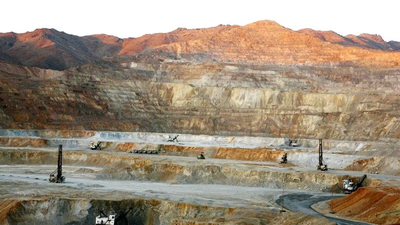
Metals have been integral to human civilization since the Stone Age, serving as tools for warfare and logistics. The history of metals includes significant milestones such as the use of copper around 8000 BCE, the development of bronze during the Bronze Age, and the transition to iron in the Iron Age. The Greeks and Romans advanced metallurgy through techniques like casting and forging. The medieval period saw the emergence of steel production, enhancing weaponry and tools. The Industrial Revolution revolutionized metal production with innovations like the Bessemer process, leading to mass production and the steel industry’s rise. In the 20th century, advancements in metallurgy included high-strength alloys and non-ferrous metals, which are now crucial in various industries including construction, transportation, and electronics. Metals are essential for sustainable energy sources, with copper, aluminum, and silver playing key roles in electrical infrastructure. Lightweight metals enhance fuel efficiency in transportation, while metals like steel are vital for construction.
Advanced manufacturing techniques, such as 3D printing, utilize metal powders for customized components. The electronics industry relies on metals for wiring and semiconductors, while healthcare applications benefit from metals like titanium and stainless steel. Recycling metals is increasingly important for sustainability, and innovations in nanotechnology are opening new avenues for metal applications.










